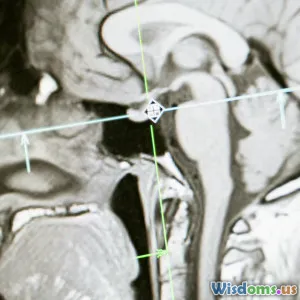
Do Dreams Enhance Memory Processing?
7 min read Explore how dreams influence memory consolidation and brain function, revealing their vital role in enhancing learning and memory processing. (0 Reviews)
Do Dreams Enhance Memory Processing? Insights from Brain Science
Dreams have captivated humanity for millennia, inspiring art, philosophy, and science alike. While once relegated to the realm of mystery or superstition, modern brain science is uncovering the essential cognitive functions performed by dreams — chief among them, the enhancement of memory processing. Could those vivid episodes playing out behind closed eyelids actually be key to how we learn, retain, and make sense of experiences? This in-depth article unpacks the growing body of evidence connecting dreams to improved memory consolidation and cognitive function.
The Mysterious World of Dreams
Dreams predominantly occur during Rapid Eye Movement (REM) sleep, a unique sleep phase characterized by increased brain activity resembling wakefulness. In REM, we experience rich narratives often disconnected from typical logic yet emotionally potent.
Historically, the scientific community viewed dreams as mere epiphenomena—noisy byproducts of neural firing without functional significance. However, emerging neuroscience research suggests dreams are a byproduct of critical brain processes associated with managing information accrued during waking hours.
Memory Consolidation: The Brain’s Filing System
Memory consolidation is the transformation of short-term memories into stable, long-lasting ones. This process primarily occurs during sleep and involves multiple brain regions, including the hippocampus and the neocortex.
How Dreams Form During Consolidation
Dreams arguably reflect the brain’s workings during memory consolidation. As memories replay and reorganize, elements are recombined, resulting in the strange but meaningful dream experiences that incorporate fragments from our waking lives.
Neuroscientific Evidence Linking Dreams and Memory
Thanks to advances like functional MRI and polysomnography, scientists have gained deeper insight into sleep and dreaming.
Study Example: REM Sleep and Memory Enhancement
A pivotal study published in Nature Neuroscience (2017) demonstrated that participants who experienced rich REM sleep after learning tasks showed significantly better recall and problem-solving capabilities than those deprived of REM.
In one experiment, subjects memorized complex visual patterns before sleep. Those whose REM phases showed heightened activity in hippocampal and prefrontal regions had improved abilities to recognize patterns the next day. This supports the notion that dreams during REM integrate new information with previously stored memories.
Hippocampal Replay and Dream Content
Researchers have found hippocampal neurons firing in sequences during REM sleep resembling patterns activated during learning tasks earlier in the day. This 'replay' has been correlated with dream recall and is crucial for memory consolidation.
Dr. Matthew Walker, a leading sleep researcher, notes, “Dreams are the experiential shadow of the brain’s essential memory consolidation work.”
Why Do Dreams Improve Memory Processing?
Dreams may facilitate several cognitive enhancements:
1. Selective Strengthening
During dreams, the brain appears to strengthen relevant memories while discarding unnecessary information. This pruning sharpens future recall.
2. Emotional Integration
Dreaming helps incorporate emotional components into memories, enabling better emotional regulation and decision-making. This is supported by the observation that REM sleep improves emotional memory retention more than neutral memory.
3. Creativity and Problem Solving
The associative, often bizarre nature of dreams suggests the brain experiments with novel connections between ideas, fostering creative problem-solving outside waking logic constraints. Famous examples include chemist August Kekulé’s benzene structure revelation through dreams.
Practical Implications
Understanding the role of dreams in memory has real-world applications:
Educators and Students
Encouraging optimal sleep—including sufficient REM phases—can improve students’ academic retention and performance. Pulling all-nighters may harm memory consolidation.
Mental Health Professionals
Since dreams facilitate emotional processing, therapies integrating dream analysis could help trauma patients or individuals with PTSD process memories healthily.
Cognitive Aging
Strategies to preserve sleep quality might forestall memory decline, supporting healthier cognitive aging.
Conclusion: Embracing the Science of Dreams
Modern neuroscience confirms that dreams are far more than mindless wanderings during sleep. They represent a vital cog in the sophisticated machine of memory processing and emotional integration. By enhancing memory consolidation through neural replay and emotional appraisals, dreams enrich our ability to learn, adapt, and thrive.
Next time you wake from a dream, consider it an essential act of your brain filing, creativity sparking, and emotional balancing — a nightly cognitive performance worthy of wonder and scientific appreciation.
References
- Walker, M. (2017). Why We Sleep: Unlocking the Power of Sleep and Dreams. Scribner.
- Rasch, B., & Born, J. (2013). About Sleep's Role in Memory. Physiological Reviews, 93(2), 681-766.
- Stickgold, R., & Walker, M.P. (2013). Sleep-dependent memory triage: evolving generalization through selective processing. Nature Neuroscience, 16(2), 139-145.
- Horikawa, T., et al. (2013). Neural decoding of visual imagery during sleep. Science, 340(6132), 639-642.
By understanding and prioritizing the science behind dreams and memory, we can unlock cognitive potentials previously overlooked in everyday life.
Rate the Post
User Reviews
Popular Posts




















